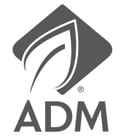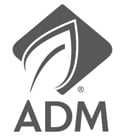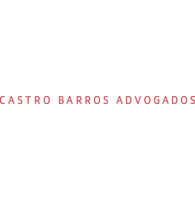
Brazil Teams 2019

| Archer Daniels Midland Company (ADM)




Archer Daniels Midland Company (ADM)
Patricia Ulian joined ADM in May 2018 bringing a new conception of the legal department. The legal department structure was since built in a client-oriented model with highly qualified and experienced lawyers working closely with the business adopting the business, collaborating methodology in order to provide the best legal support to the business. The rationale of this model is to have lawyers fully involved and integrated with the business, being able to understand their needs and anticipating solutions. As general counsel, Ulian manages from the top of the legal organisation in Latin America and has four legal managers reporting directly to her in Brazil and three other managers in each country: Paraguay, Mexico and Argentina.
The second layer (legal managers) are simultaneously in charge of business units, acting as business partners and focal points for specific legal areas for consultation and litigation, as follows Fernanda Gonçalves, BP for oil processing (biodiesel, soybeans, palma and sunflower); Carlos Leitão, BP for human and animal nutrition business; Maria Murad, BP for logistics, including Santos Port and transportation; and Flavia Costa, BP for trading of grains and cotton.
Patricia Ulian, as the general counsel, has participated in the creation and implementation of the company’s Diversity and Inclusion Committee in Brazil. The committee’s initiatives have reinforced ADM Policies of Mutual Treatment and Compliance; implemented panel discussions with external and internal speakers; reinforced legal rights protected by Brazilian law targeting inappropriate behaviour such as improper jokes, offensive comments, behavioural bias, etc. It has used videos, inside stories, a series of speeches from successful women and supportive male leaders in different levels and positions of the organisation throughout all South America countries and joined local activities like runs, D&I days, and lectures.
Freight Minimum Price Table: In May 2018 Brazil faced a truck-diver’s strike for almost 12 days. The strike slowed Brazil’s economy, impacted transportation and caused estimated losses of US$1.75bn to Brazil’s agricultural sector according to CNA – Brazil’s National Confederation of Agriculture. In order to stop the strike the Federal Government agreed on creating some rules to benefit of truck-drivers, including the diesel oil price reduction. Besides other measures, it was published a new legislation to establish freight’s minimum price for road transportation. The regulation to establish freight’s minimum price can increase the freight’s costs tremendously, which can impact ADM’s business. The most significant impact is an estimated increase of up to 100% in the values of some freight with the application of the table. Extra costs generated by the table will affect the productive sector and the entire supply chain and naturally will be passed on to the final consumer. There will also be direct impact on inflation indicators. The medium-term effect will be the decrease in demand for terrestrial freight services – the disproportionate increase caused by freight tariffs will generate permanent losses to the autonomous truck drivers themselves, since the shipping companies have been seeking to reduce their dependence on this type of carrier. The law brings legal uncertainty to contractors and freight providers, as they have had difficulty applying the table correctly and are subject to fines. Entities representing agribusiness and industries sectors consider the regulation unconstitutional and illegal for violating the principles of the free competition and free enterprise, among others. Jointly with Agricultural Associations, the legal department was involved in many discussions about the legal strategy to fight back against such a regulation, including the filing of legal measures. The Brazilian Supreme Court (STF) was supposed to decide the constitutionality of the law in 4 September 2019 but it was postponed. Government, truck drivers and agribusiness sectors even after several negotiations have not yet reached an agreement. More than one year after the strike, it is clear that setting a minimum cost of freight was not an advantageous solution even for the drivers themselves who clamoured for it. The possibility of adopting a non-mandatory reference table was discussed, but there is still much controversy about the topic.
Judicial Reorganisation (JR) Proceeding for Individual Rural Producers: In Brazil, trading companies finance farmers’ production by providing seeds, fertiliser and other inputs early in the season in order to assure delivery of grains at harvest time. Such a transaction is named “barter”.
Previously to the approval of a barter, the trading team (legal or credit team) evaluate its risks in accordance with client (lender) profiles and current legislation. At such a pre-transaction evaluation, ADM used to consider the possibility of a JR in favour of an unregistered individual farmer (seller or borrower) according to law 11,101/2005 which provides that an individual farmer only can be benefited by a JR when duly registered under any Brazilian Commercial Public Registry for at least two years.
Despite of the terms of the Law 11,101/2005, Brazilian Courts (including the Superior Court of Appeals) have granted the benefits of a JR proceeding to farmers not registered before the mentioned period. Trading firms have been harmed by decisions as farmers they relied on, as individuals are, nowadays, able to seek bankruptcy protection as if they were corporations duly registered. Trading companies became more exposed to credit risk as its contracts with farmers can be suspended by slow-moving JR proceedings. When courts grants JR protection without observing the legal requirements they put credit analysis at risk, cause a lack of legal uncertainty and, also, impair the recoverability of existing debts as it became harder to recover amounts due by individuals farmers. When granted, the company is not entitled to enforce its credit through an execution or collection proceeding, must await a long-term period to receive the due amounts in accordance with the terms of the plan.